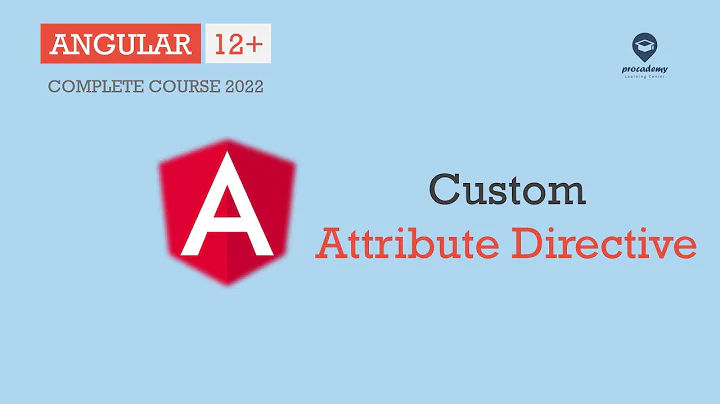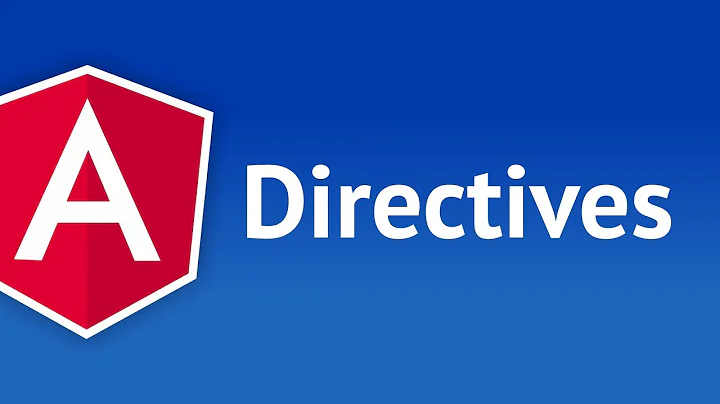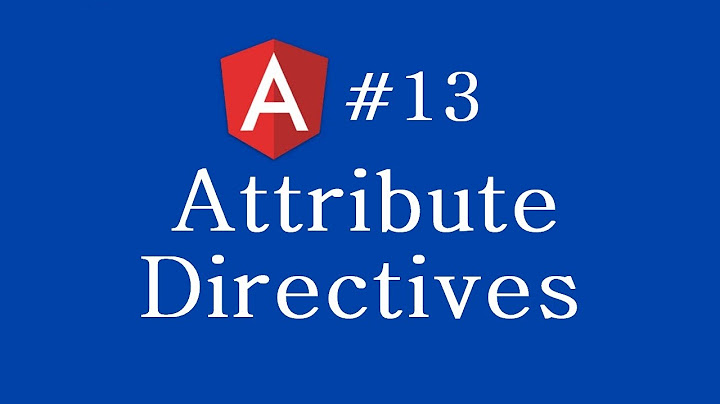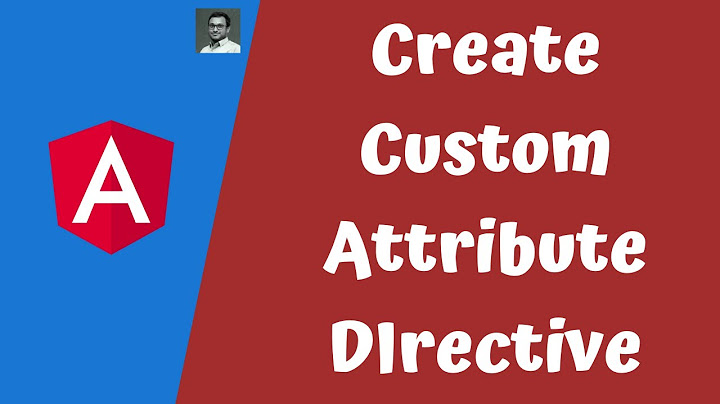Can an angular directive pass arguments to functions in expressions specified in the directive's attributes?
Solution 1
If you declare your callback as mentioned by @lex82 like
callback = "callback(item.id, arg2)"
You can call the callback method in the directive scope with object map and it would do the binding correctly. Like
scope.callback({arg2:"some value"});
without requiring for $parse. See my fiddle(console log) http://jsfiddle.net/k7czc/2/
Update: There is a small example of this in the documentation:
& or &attr - provides a way to execute an expression in the context of the parent scope. If no attr name is specified then the attribute name is assumed to be the same as the local name. Given and widget definition of scope: { localFn:'&myAttr' }, then isolate scope property localFn will point to a function wrapper for the count = count + value expression. Often it's desirable to pass data from the isolated scope via an expression and to the parent scope, this can be done by passing a map of local variable names and values into the expression wrapper fn. For example, if the expression is increment(amount) then we can specify the amount value by calling the localFn as localFn({amount: 22}).
Solution 2
Nothing wrong with the other answers, but I use the following technique when passing functions in a directive attribute.
Leave off the parenthesis when including the directive in your html:
<my-directive callback="someFunction" />
Then "unwrap" the function in your directive's link or controller. here is an example:
app.directive("myDirective", function() {
return {
restrict: "E",
scope: {
callback: "&"
},
template: "<div ng-click='callback(data)'></div>", // call function this way...
link: function(scope, element, attrs) {
// unwrap the function
scope.callback = scope.callback();
scope.data = "data from somewhere";
element.bind("click",function() {
scope.$apply(function() {
callback(data); // ...or this way
});
});
}
}
}]);
The "unwrapping" step allows the function to be called using a more natural syntax. It also ensures that the directive works properly even when nested within other directives that may pass the function. If you did not do the unwrapping, then if you have a scenario like this:
<outer-directive callback="someFunction" >
<middle-directive callback="callback" >
<inner-directive callback="callback" />
</middle-directive>
</outer-directive>
Then you would end up with something like this in your inner-directive:
callback()()()(data);
Which would fail in other nesting scenarios.
I adapted this technique from an excellent article by Dan Wahlin at http://weblogs.asp.net/dwahlin/creating-custom-angularjs-directives-part-3-isolate-scope-and-function-parameters
I added the unwrapping step to make calling the function more natural and to solve for the nesting issue which I had encountered in a project.
Solution 3
In directive (myDirective):
...
directive.scope = {
boundFunction: '&',
model: '=',
};
...
return directive;
In directive template:
<div
data-ng-repeat="item in model"
data-ng-click='boundFunction({param: item})'>
{{item.myValue}}
</div>
In source:
<my-directive
model='myData'
bound-function='myFunction(param)'>
</my-directive>
...where myFunction is defined in the controller.
Note that param in the directive template binds neatly to param in the source, and is set to item.
To call from within the link property of a directive ("inside" of it), use a very similar approach:
...
directive.link = function(isolatedScope) {
isolatedScope.boundFunction({param: "foo"});
};
...
return directive;
Solution 4
Yes, there is a better way: You can use the $parse service in your directive to evaluate an expression in the context of the parent scope while binding certain identifiers in the expression to values visible only inside your directive:
$parse(attributes.callback)(scope.$parent, { arg2: yourSecondArgument });
Add this line to the link function of the directive where you can access the directive's attributes.
Your callback attribute may then be set like callback = "callback(item.id, arg2)" because arg2 is bound to yourSecondArgument by the $parse service inside the directive. Directives like ng-click let you access the click event via the $event identifier inside the expression passed to the directive by using exactly this mechanism.
Note that you do not have to make callback a member of your isolated scope with this solution.
Solution 5
For me following worked:
in directive declare it like this:
.directive('myDirective', function() {
return {
restrict: 'E',
replace: true,
scope: {
myFunction: '=',
},
templateUrl: 'myDirective.html'
};
})
In directive template use it in following way:
<select ng-change="myFunction(selectedAmount)">
And then when you use the directive, pass the function like this:
<data-my-directive
data-my-function="setSelectedAmount">
</data-my-directive>
You pass the function by its declaration and it is called from directive and parameters are populated.
Related videos on Youtube
Ed_
Developer & business owner (pixelnebula.com) Always on the lookout for great JavaScript developers - if you're looking for a job in the UK drop an email with your CV to: #SOreadytohelp
Updated on February 02, 2020Comments
-
 Ed_ over 4 years
Ed_ over 4 yearsI have a form directive that uses a specified
callbackattribute with an isolate scope:scope: { callback: '&' }It sits inside an
ng-repeatso the expression I pass in includes theidof the object as an argument to the callback function:<directive ng-repeat = "item in stuff" callback = "callback(item.id)"/>When I've finished with the directive, it calls
$scope.callback()from its controller function. For most cases this is fine, and it's all I want to do, but sometimes I'd like to add another argument from inside thedirectiveitself.Is there an angular expression that would allow this:
$scope.callback(arg2), resulting incallbackbeing called witharguments = [item.id, arg2]?If not, what is the neatest way to do this?
I've found that this works:
<directive ng-repeat = "item in stuff" callback = "callback" callback-arg="item.id"/>With
scope { callback: '=', callbackArg: '=' }and the directive calling
$scope.callback.apply(null, [$scope.callbackArg].concat([arg2, arg3]) );But I don't think it's particularly neat and it involves puting extra stuff in the isolate scope.
Is there a better way?
Plunker playground here (have the console open).
-
 Dmitri Zaitsev over 8 yearsThe attribute naming "callback =" misleads. It is really a callback evaluation, not a callback itself.
Dmitri Zaitsev over 8 yearsThe attribute naming "callback =" misleads. It is really a callback evaluation, not a callback itself. -
 Ed_ over 8 years@DmitriZaitsev it's a callback angular expression that will evaluate to a JavaScript function. I think it's fairly obvious that it's not a JavaScript function in itself. It's just preference but I would prefer not to have to suffix all of my attributes with "-expression". This is consistent with the
Ed_ over 8 years@DmitriZaitsev it's a callback angular expression that will evaluate to a JavaScript function. I think it's fairly obvious that it's not a JavaScript function in itself. It's just preference but I would prefer not to have to suffix all of my attributes with "-expression". This is consistent with thengAPI for exampleng-click="someFunction()"is an expression that evaluates to executing a function. -
 Dmitri Zaitsev over 8 yearsI have never seen Angular expression called "callback". It is always a function that you pass to be called, whence the name. You even use a function called "callback" in your example, to make things even more confusing.
Dmitri Zaitsev over 8 yearsI have never seen Angular expression called "callback". It is always a function that you pass to be called, whence the name. You even use a function called "callback" in your example, to make things even more confusing. -
 Ed_ over 8 yearsI'm not sure if you're confused or I am. In my example
Ed_ over 8 yearsI'm not sure if you're confused or I am. In my example$scope.callbackis set by thecallback="someFunction"attribute and thescope: { callback: '=' }property of the directive definition object.$scope.callbackis a function to be called at a later date. The actual attribute value is obviously a string - that is always the case with HTML. -
 Dmitri Zaitsev over 8 yearsYou name both attribute and function the same - "callback". That's the recipe for confusion. Easy to avoid really.
Dmitri Zaitsev over 8 yearsYou name both attribute and function the same - "callback". That's the recipe for confusion. Easy to avoid really.
-
-
ach over 9 yearsVery nice! Is this documented anywhere?
-
 Dmitri Zaitsev about 9 yearsUsing
Dmitri Zaitsev about 9 yearsUsingscope.$parentmakes the directive "leaky" - it "knows" too much of the outside world, which a well-designed encapsulated component shouldn't. -
ndee about 9 yearsA nice approach but I am not able to use the
thispointer inside the callback method, because it uses the scope of the directive. I am using Typescript and my callback looks like this:public validateFirstName(firstName: string, fieldName: string): ng.IPromise<boolean> { var deferred = this.mQService.defer<boolean>(); ... .then(() => deferred.resolve(true)) .catch((msg) => { deferred.reject(false); }); return deferred.promise; } -
OMGPOP about 9 yearsI dont think it's a good solution because in directive definition, sometimes you wouldn't know what's the parameter to pass in.
-
 lex82 almost 9 yearsWell, it knows that it has a parent scope but it does not access a particular field in the scope so I think this is tolerable.
lex82 almost 9 yearsWell, it knows that it has a parent scope but it does not access a particular field in the scope so I think this is tolerable. -
Episodex almost 9 yearsNotice: if you have nested directives and want to propagate callback upwards you need to unwrap in each directive, not only the one triggering callback.
-
 Wtower over 7 yearsThis is a good solution and thank you for that, but I believe the answer needs a bit of tide-up. Who is lex82 and what has he mentioned?
Wtower over 7 yearsThis is a good solution and thank you for that, but I believe the answer needs a bit of tide-up. Who is lex82 and what has he mentioned? -
 trainoasis over 6 yearsInteresting approach. Although what happens when you want to allow any function with ANY parameter(or multiple) to be passed? You know nothing of the function nor of its parameters and and need to execute it on some event inside directive. How to go about it? For example on a directive you could have onchangefunc='myCtrlFunc(dynamicVariableHere)'
trainoasis over 6 yearsInteresting approach. Although what happens when you want to allow any function with ANY parameter(or multiple) to be passed? You know nothing of the function nor of its parameters and and need to execute it on some event inside directive. How to go about it? For example on a directive you could have onchangefunc='myCtrlFunc(dynamicVariableHere)' -
 Ankit Pandey over 4 yearsWhile having In source: bound-function='myFunction(obj1.param, obj2.param)'> then how to proceed?
Ankit Pandey over 4 yearsWhile having In source: bound-function='myFunction(obj1.param, obj2.param)'> then how to proceed?










